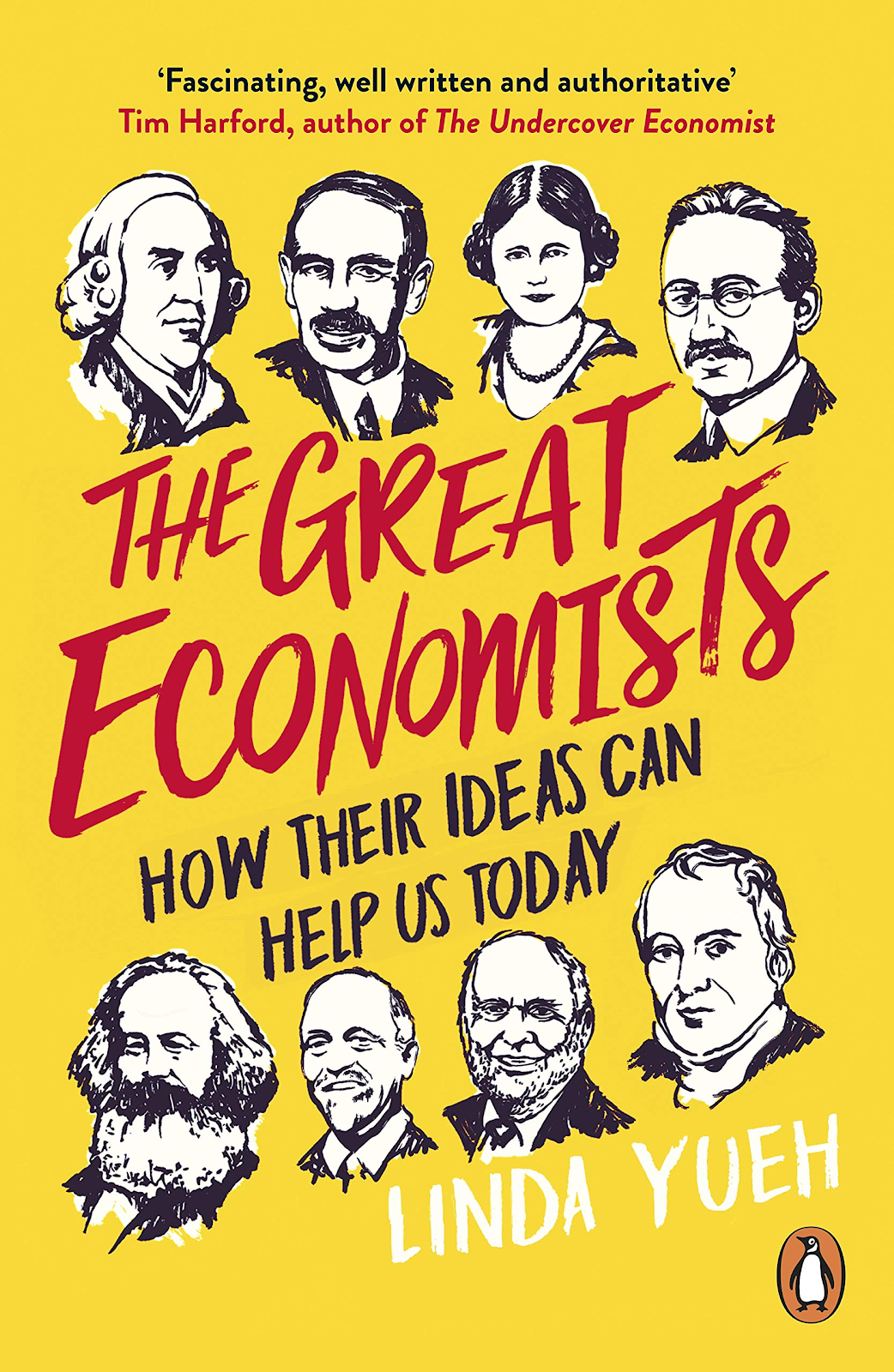Book Review: The Great Economists – How their Ideas can Help us Today by Linda Yueh
The Great Economists by Linda Yueh might be seen as an attempt to seek the advice of history’s best economists in order to solve present economic challenges such as slow growth, de-industrialization, massive trade deficits, and how to stimulate innovation. Yueh highlights a notable economist whose theories or ideas have shaped the way we think and are deemed vital in our understanding of economics for each of these challenges. Adam Smith, David Ricardo, Joan Robinson, and Milton Friedman are among the twelve economic experts.
This book stands out since it is easy to read and comprehend. It follows a set pattern, with each chapter broken into three sections. Each chapter first includes an introduction to the economist and a description of their early lives, as well as how and why they came to be recognized for what they are now. She then delves into their statements and theories in detail. The reader will learn what these economists believed in, the different debates they sparked, as well as the elements that became the foundations of their theories. More importantly, all of these theories are still relevant today, and one can truly match their ideology to the current circumstances. The third section is perhaps the most fascinating, as the author walks you through how their theories may be used to understand the present economic situation, starting with the financial crisis and other contemporary events. This book is fantastic because of these three elements on various economists. The majority of theories were developed in the context of the environment in which they lived.
Each chapter may be read on its own, and the order in which the three sub-courses are presented while writing about an economist adds to the book’s appeal. The writing approach is engaging, and it walks readers through essential aspects of the current economic issues with the support of data and international comparisons. Readers will like learning about the economists because many of them led rather unconventional lives.
The world in which these economists lived moulded their thoughts and ideas, yet many generations of economists have been able to extract the underlying mechanisms and convert them into current policies based on those principles. This constant conversion is one of the most pressing challenges we face today. The complexity of modern economies, the speed of the digital revolution, and radical shifts in political and social values make us wonder whether we have lost our sense of direction to navigate through economic challenges or whether we simply need to learn how to explore and navigate uncharted new routes.
What’s the bottom line? Learn from the mistakes in the past and avoid repeating the same ones again.
Overall, a very interesting and instructive book that places major historical theories in a present perspective to better inform future policy decisions.
Originally published on: https://chanakyaeconomicsjmc.wordpress.com/

Comments
Post a Comment